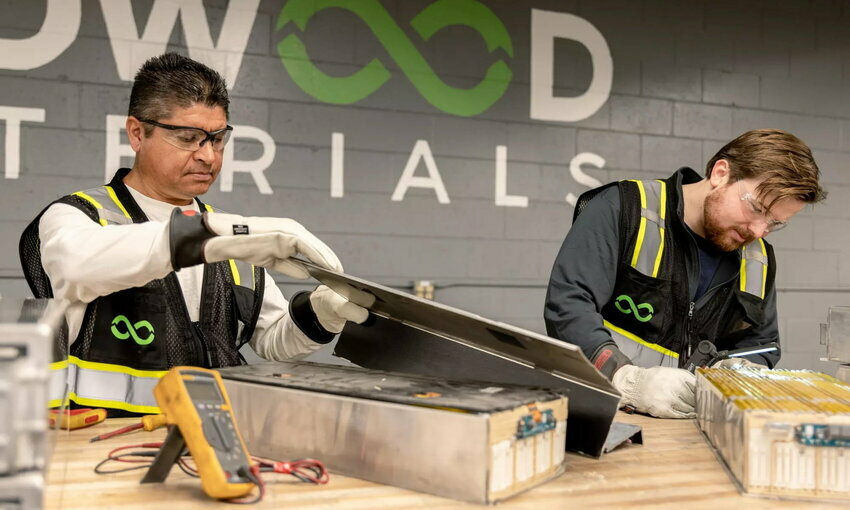 (Credit: Redwood Materials)
(Credit: Redwood Materials)Redwood Materials has raised $1 billion in series D shares, allowing the company to extend its capacity in the domestic battery supply chain. According to the company, this will also allow customers to buy U.S.-made battery materials for the first time.
With this achievement, the battery recycling company has now raised about $2 billion of equity capital and maintains a $2 billion loan commitment from the Department of Energy. The company plans to expand its collection of end-of-life batteries and increase its refining capabilities to be able to handle higher quantities of recovered batteries.
The equity funding round was co-led by Goldman Sachs Asset Management, Capricorn’s Technology Impact Fund, and T. Rowe Price Associates. New investors, including OMERS, Caterpillar Venture Capital, Microsoft’s Climate Innovation Fund, Deepwater Asset Management, and others, also invested and will support Redwood’s efforts toward creating a closed-loop battery supply chain.
“As the electrification megatrend continues to accelerate, building a local sustainable battery materials supply chain is more important now than ever,” said Sebastien Gagnon, a managing director in private equity at Goldman Sachs Asset Management. “We believe the Redwood team is well-positioned to become a leader in the battery materials industry. We look forward to working with the company in the coming years and leveraging our firm’s global platform to support Redwood’s growth, which we believe will play an important role in the ongoing energy transition.”
Electric vehicles have become a major tool for decarbonizing transportation, and the Biden administration aims for EVs to represent 50% of all new U.S. vehicle sales by 2030. A commonly cited concern about EVs, though, is the emissions and environmental damage caused by their manufacturing process. Further, EV industry growth may be hindered by the limited nature amount of materials used to make batteries, such as lithium and cobalt.
Lithium-ion battery recycling responds to these concerns. Redwood’s ability to recycle lithium-ion batteries decreases global reliance on mining and can help lower the overall cost of EV batteries by keeping critical materials in circulation.
At present, only 5% of lithium-ion-containing devices are recycled, and on average, consumers only keep their devices for about three years. Therefore, there is massive potential for the lithium-ion recycling industry to increase the amount of available lithium to use in EV creation while creating a more sustainable EV industry.